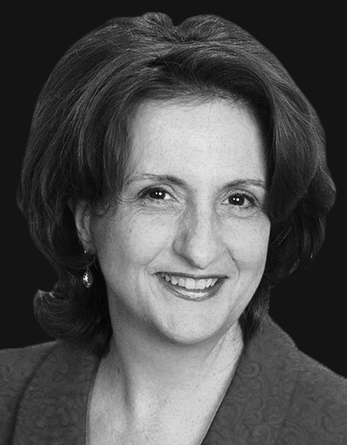
Longtime church members Scott and Alyssa make a beeline for you in the church parking lot after services. Alyssa’s eyes are red, and Scott’s movements seem almost frantic. Without even knowing the details, your heart goes out to this couple.
Scott wastes no time. “Our son, David, just told us he’s an atheist.” He exhales quickly while his expression pops wide in disbelief. “He said he’s done with God, done with religion—doesn’t want any discussion on it.” Alyssa adds in obvious distress, “He texted it, of all things, Pastor. We saw it just as church ended.” With her arms wrapped tightly across herself, “What did we do wrong? Wh-what do we do now?”
Here it comes—Pastoring 101. Caring for your flock. Providing calm, giving direction, bringing hope. But what will you tell them? Will your advice even make a difference at this point, once the declaration has been made?
The answer is yes, your advice can make a difference, a huge difference, in fact, especially at this point. Parents often react in fear and pain, straining even further the tension that now exists between them and their adult child. Some of their reactions could make the situation better, but some could make it worse.
You can arm Scott and Alyssa with tools and a clearer understanding that could make a difference from here on out.
Encourage parents to connect with the whole person
Many parents feel desperate when faced with the loss of their child’s faith, and their conversations can reflect it. The son or daughter now becomes a project, with parents inserting God into virtually every conversation, whether it fits or not, whether invited or not. From the prodigals’ point of view, their parents see them only as a massive religious training failure—nothing more.
No one would like this, including, by the way, these parents or even us. For instance, imagine that your neighbors are of a different religion from you. Every time they see you, they tell you of their God, share how your choices are wrong, invite you to their place of worship, hand you a CD of music supporting their beliefs, let you know of the failings of your theology, and so on. Simply sharing a laugh or an interesting piece of news or a few gardening tips, all just for its own sake, never happens. Everything has an agenda. At some point you’d be annoyed and perhaps would even begin avoiding them altogether. And here’s the important point: you wouldn’t think well of their faith either.
No one wants to be someone’s project. So even though this prodigal has made a decision that sets him or her apart from the faith community, parents still need to interact with the whole of this person, not just the point of dispute. Encourage mom and dad to interact with the child in areas outside of the faith decision. Did they used to go to ball games together? See movies? Bike the trails? Chat about books read? Play paintball? Visit a museum followed by lunch at a favorite restaurant afterward? They should keep doing these things, maintaining a human connection that creates a bridge.
Remind them of the relationship model that Jesus himself provided. He didn’t just preach at people, He ate with them, walked with them, went to wedding parties with them, grieved with them. In other words, He interacted on many levels. Remind parents to connect with the whole of their child, not just the one component that represents their strongest differences.
Yes, these adult children’s new worldview and life choices cause pain. No doubt. But loving them through this journey creates a bridge. At some point in the future, as flaws emerge in their worldview, they may one day cross back over this bridge and ask for advice. That is a bridge worth nurturing.
Focus their attention on boundaries, not behaviors
Parents spend their son’s or daughter’s entire childhood teaching the child right from wrong, safe from unsafe, good from bad. Power in those early years is compelling. The ability to influence or control a child’s behavior is almost absolute.
As children grow, the goal of course is to transition them into adults who make those responsible decisions for themselves. If they do, all is well. But if they don’t, this passage can be bumpy. They may instead become adults who make questionable or even dangerous decisions. Parents instinctively cling to that go-to response of simply forbidding things, issuing ultimatums, or showing guilt-inducing disappointment. That may have been appropriate in dealing with a child, but it is not when dealing with an adult, even one making poor decisions, even when that adult was once their own little child.
So here’s the key: adults aren’t responsible for making decisions for other adults.
And here’s the test: would we say this or do this to a neighbor?
Seeing and selecting a more appropriate reaction is almost instinctive when starting with an adult who was never their child. Equipping parents with these two simple sentences will help them gauge and calibrate more reasonable responses.
When it comes to adults in our world, parents may not be responsible for an adult child’s choices or behaviors, but we are responsible for how we let those choices impact our world and family. Encourage parents to apply boundaries when the adult child’s choices directly affect their lives and those of other family members.
Badgering vs. advising—make sure parents know the difference
If the relationship with this adult child is such that he or she sometimes seeks the advice of the parents, that speaks well. Offer it. But parents are often so desperate to get this child back into the fold of faith that they don’t just offer advice, they offer it over and over (and over) again. They believe there must be something they didn’t make clear, something this prodigal simply doesn’t understand. So they find themselves repeating things in the hope that it will somehow penetrate.
What if you’re wrong about life after death?
Don’t you know your body is a temple of the Lord?
Bringing pleasure to God is your highest calling.
But here’s a difficult truth: this son almost certainly knows how his parents feel about God or living with his girlfriend or getting drunk or a host of other beliefs and behaviors he may now choose to engage in. Telling him for the 3,000th time won’t make him know it any better. If these worried parents find themselves telling him the same thing more than once, they may have crossed over from advising to badgering. A far better response would be to say, “Well, son, you already know how we feel about that, so I won’t badger you by telling you again. But I want you to know I will always love you. You will always be my son.”
Three great things happen in this response:
- It doesn’t skimp on sin. Parents frequently worry that if they don’t call out an obvious sin every time they encounter it, they are giving tacit approval. By stating that the child already knows how this parent feels, there is a quietly stated sin-is-still-sin element that acknowledges it without making it the focus and feature of the exchange.
- It respects the adulthood. By stating the clear goal of wanting to avoid the disrespect of badgering, the parents recognize the prodigal as an adult with appropriate boundaries.
- But the big message? Even while you were yet a sinner, God loved you—and so do your parents. This child’s behavior doesn’t define or limit the love of the parents. This unconditional love has far more impact than a repeated critical review of a sin. It lets the child know that this love transcends the ups and downs of behavior. It mirrors the same love, language, and grace of God Himself for us.
They are not alone
Scott and Alyssa may feel like their child is the only one in their faith circle to have made such a move, but there are parents in virtually every church walking this same painful journey. The social and theological landscape has changed. There was a time when atheists were rare, seen as outliers, loose cannons, noisy rebels. But today they’re mainstream. This is the golden era of atheism. Apologist authors like Hitchens, Harris, and Dawkins write books that rocket to the top of The New York Times Best Seller lists. Talk show celebrity Bill Maher, famed magicians Penn & Teller, renowned scientist Stephen Hawking, humorist Dave Barry, Daniel Radcliffe, and so many others are the new ubiquitous face of atheism. At one time, you could count on mainstream culture to support a young adult’s belief and declaration in God. Now you can absolutely count on this culture to challenge it.
Don’t miss that God, in His very God-ness, can use all of this. Any philosophy that jettisons a sense of a sinful nature or divorces itself from a moral compass is doomed. It may take a while, but at some point, the ugly underbelly of such beliefs will emerge. However, I still see the God-possibilities in this. This generation, fully exposed to atheism, may emerge with a faith that is more grounded and rooted than that of our own generation. They will know why they know what they know.
Until then, their parents are wounded, fearful, and in need of support from their faith community. This is where the church can really meet a need.
Tools and resources to equip hurting parents
Consider starting a group to minister to such parents.
- Give them a safe place to talk, share, cry, and pray for one another.
- Provide a forum where they can discuss the challenges of navigating such an unexpected event.
- Help them to alleviate the baggage of unmerited guilt and acknowledge the truth of this child’s free will.
- Allow them a place to grieve.
Provide insight into the mind of today’s atheist culture.
- Equip parents with apologetics tools to better understand how today’s atheists think.
- Bring in guest speakers, former prodigals, apologists, even current atheists.
- Offer workshops or classes using materials by great thinkers like Ravi Zacharias, Lee Strobel, or C. S. Lewis.
- Create a lending library with some of the best resources.
Scott and Alyssa are wounded, and they have a lot of work ahead of them. There are going to be some tough times, and they will need your guidance more than once. But that precious concept of loving people while they are yet sinners is a face-of-Jesus role model that will carry the day. After all, it carries all of us.
Editor’s note:
For another article on helping parents of adult children, consider How Pastors Can Help Empty Nesters with Their Parenting by Michele Howe.
